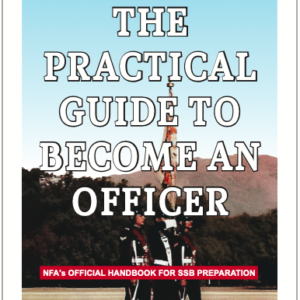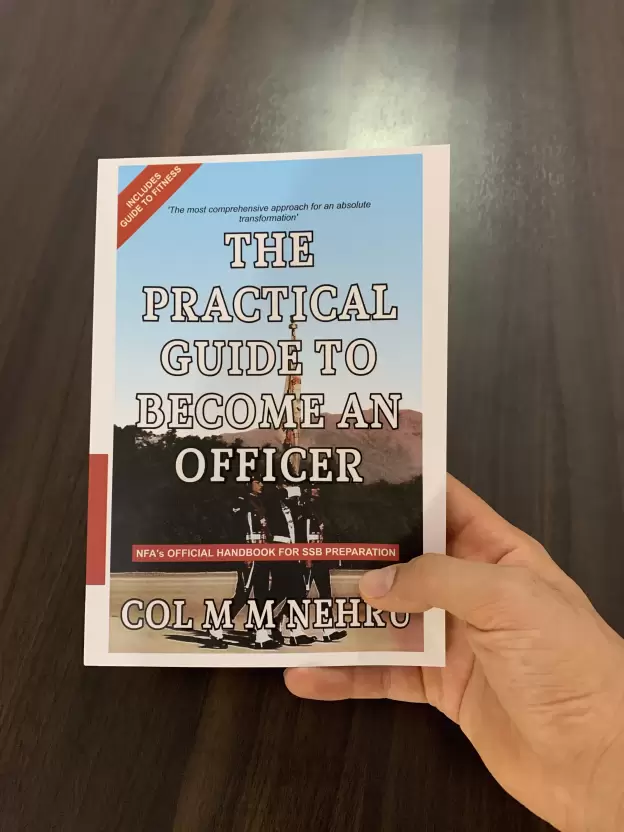Who am I?
Before I get on to explaining the problems of overthinking, stress and their resolution it is important to understand as to who am I? We often think that we are our mind. I am not getting into any deep philosophy but just discussing simple facts that can be corroborated by experience. We can control our thoughts. You can tell your mind not to think about a particular thing. When we meditate, we can get our mind to focus on our breath; when playing a computer game, the mind cannot think about the unpaid bills. Thus, it is important to realize that the mind given to us by nature is a very useful tool. We should train it and use it for our betterment. If we allow our mind to control us then we will create problems for ourselves. Mind is a useful tool but a poor master.
Overthinking
Explanation
“Generally, “overthinking” refers to the process of repetitive, unproductive thoughts. Since thoughts can be focused on many different things, research has generally differentiated between “rumination” about the past and “worry” about the future. Regardless of which word we use, we are talking about constant thought loops that do not seem to have a resolution. When a person is “overthinking” he/she is thinking about past or future without coming to a solution. In simple words he/she is wasting time in an unproductive exercise.
Reasons
- If we are dwelling on a past incident/action and we realize that we made a mistake then we keep replaying it in our mind and it leads to generation of negative thoughts and lowered self-esteem.
- If we are dwelling on a past incident where someone else did some wrong to us, we keep generating negative feelings about him/her.
- If we are worrying about an immediate future event like an exam/interview then the result is important to us and it is also uncertain.
- If we are worrying about a long-term future like career, business or marriage, once again the result is important and uncertain.
- The mind likes to be in control and does not like uncertainty. It worries to resolve the problem of uncertainty. The more important a thing is the greater is the reason to worry. Thus, an important exam/interview keeps you worrying and sleepless.
Good Aspects of Overthinking
If the exam or the interview helps you to focus on preparing better, it is good for you because it will get you good results. Remember the concentration you had in studying a night prior to the exam, that is good.
Bad Aspects of Overthinking
Rationally thinking, any thoughts about the performance in an exam post the event, apart from learning as to how you could have performed better, are an exercise in futility and wastage of energy. This is the bad part of “overthinking”.
Solution
- Things in life can be placed into three categories:
- Direct control (your own thoughts and actions).
- Indirect control (people whose thoughts and actions you can influence by your conduct-like family members, students and colleagues).
- No control (examples: weather, oil prices, government policies, exam results and our past actions).
Rational thinking tells us that we should focus our energies on things which are under our direct control and do the best that we can on such things, examples: as a student know your subject well and as a worker do your job well. The indirect control will be an outflow of an individual’s actions. Fellow students will seek help from or get inspired by the most clear-headed student; similarly, the most competent worker will inspire other workers. In due course the good student/worker will rise to leadership positions and increase his/her influence through indirect control of his/her thoughts or actions. Rational thinking also explains to us the futility of focusing our energy on things which come under the category of “no control”. Thus, by thinking rationally we can avoid falling in the trap of “overthinking”.
- Problem of Importance. The severity of worry can be greatly reduced by telling your mind that the exam/interview is not important to you.
- Problem of Uncertainty. The severity of worry can be lowered bytelling our mind that the result is certainly a failure. Once that is done then also the anxiety reduces. Let us say you are going for SSB. Please do the following:
- Focus total effort on what is in your direct control: Improve upon English, academics, GK, fitness and anything else that you have identified.
- Tell your mind that 90% of the candidates get screened out and so be prepared to get screened out. Screening in would be a bonus.
- Once you are screened in, do not take pressure to be selected but remain prepared for rejection. Once again focus only on doing what is in your direct control well. Once a thing has gone wrong, remember not to repeat it but let it not affect your further performance because past action comes under the category of “no control”.
- “All is Well”. The “all is well” technique used to calm the mind in the movie, “3 Idiots” is not baseless. It is a very good technique to calm our mind.
Other Remedies
- Focus on Actions Rather than Thoughts. In all situations causing anxiety identify as to what actions you can take and focus energy on that only. It will reduce the anxiety.
- Meditation. Meditation is a good technique to calm our mind and reduce worries.
- Sports, Games, Exercises. All these healthy recreational activities focus our mind on enjoyable activities. These activities also generate endorphins which make us feel good and reduce anxiety.
- Study, Work, Creative Activity. Any focused activity will help us improve ourselves and build self-esteem. These activities are also comparable with meditation and will reduce anxiety.
Stress Management
Improving Mental Capacity and Stress Tolerance
Before I get into discussing stress and stress management it is important to understand the concept of improving mental capacity and stress tolerance. You would expect a senior Army officer with considerable field experience or a senior business leader or a senior public servant to have a high capacity of stress tolerance vis-à-vis a young professional starting his/her career or someone who has handled very limited complexities in his/her career. How has the stress tolerance of the people discussed above increased? The answer is simple: Successful handling of complex real-life problems has increased their capacity and confidence to do so in the future. Putting the idea in simple words is that mental muscles can be treated like physical muscles. Just like our physical muscles get strengthened by the “progressive overload” principle, so do our mental muscles. If we do not overload our physical muscles our strength will not improve. If the muscle overload is beyond a certain threshold and there is inadequate rest provided then also our strength will not improve but deteriorate because the training would be considered as “overtraining”. The analogy applies to the mental muscles as well. If after handling a difficult crisis or operation a person feels that he/she has handled it well and is confident to shoulder higher degrees of risks/complexities then the mental muscles have grown. If the person is left dis-spirited and demoralized after being in a difficult situation then the mental muscles have been “over-stressed”. The person needs time to recover and recharge his mental batteries and again recommence work on building the mental muscles.
What is Stress?
Stress can be defined as a state of mental or emotional strain or tension resulting from adverse or demanding circumstances.
Good Stress?
People voluntarily undertake risky activities like car racing, bungee jumping and so on because they like the rush of adrenalin or the stress. Difficult situations put our mind in the “fight/flight” mode and the increased alertness level helps us perform better than if we had not perceived the risk or difficulty in the situation we were confronting. So long as we come out of the temporary stressful situation successfully the stress has been beneficial. The last night concentration before the exam helps us prepare and perform well. This is good stress.
I find a large number of drivers find it risky to drive at 100 km per hour on an empty highway for one hour because it can put them to sleep. The same person will find it easier to drive on the same highway at the same speed, if there is some traffic and he has to do some overtaking, braking and lane changing. This is “good stress” because no traffic makes the person complacent.
Bad Stress?
The same driver, if required to drive continuously for two hours with continuous braking, pressing of the clutch, honking and so on would find it “bad stress” and he/she would want a break and would be rather irritable at the end of the two hours of driving.
We cannot expect to continue writing exams for one month with the same enthusiasm as one or a few exams. The adrenalin rush for one month will become “bad stress” because it will adversely impact our health and our ability will get degraded.
Stress can be bad because of the intensity of the situation as also the duration of the situation. Daily petty domestic fights (duration) can be as stressful as a loss of job (intensity).
Symptoms of Bad Stress
Some symptoms of bad stress are:
- Excessive worrying.
- Trouble focusing.
- Twitching, trembling or shaking.
- Racing heart or heart palpitations.
- Panic attacks.
- Nausea.
- Stiffness or tension in the body.
- Sweating.
- Insomnia.
- Restlessness.
- Fatigue.
- Irritability or agitation.
Stress-Management
Stress-management should be thought of only in case a person is a victim of “bad stress” and the condition can be discerned from one or more of the above symptoms. Stress-management techniques are quite similar to the techniques advised for “overthinking”. More often than not a simple break can be a good enough solution. Additional remedial measures for healthy living are helpful like:
- Good sleep.
- Healthy eating and not binging on food.
- Drinking plenty of water and fluids.
- Deep breathing.
- Telling your mind that “all is well” or “this difficulty will end.”
- Take the support of family and friends. Sharing of problems can be a good stress buster whereas bottling up of stress in our mind with no outlet can be very problematic.
- Taking psychiatric help can also be a good idea if the symptoms are serious and you are tending to go into depression.
- The population of Ukraine can do the following:
- Create an effigy of Putin and bang it up.
- Talk about the war with family and friends.
- Tell their minds, “this crisis will soon end”.
References: Overthinking: Definition, Causes, & How to Stop – The Berkeley Well-Being Institute (berkeleywellbeing.com)
What Is Overthinking Disorder? How To Cope With Anxiety And Overthinking | ReGain
(117) How to make stress your friend | Kelly McGonigal – YouTube
3 Idiots-Movie.

Col. MM Nehru
While in the Army as a Colonel, Judged Reality Show, “Mission Army-Desh ke Rakshak” of National Geographic in 2011.
Selector for Defence Services at 17 SSB, Bangalore.
SPORTS & FITNESS RELATED EXPERIENCE: Trained Services/ national/international level boxers. Trained Services athletes.
Top level Tennis player in India (above 55 years age category).









